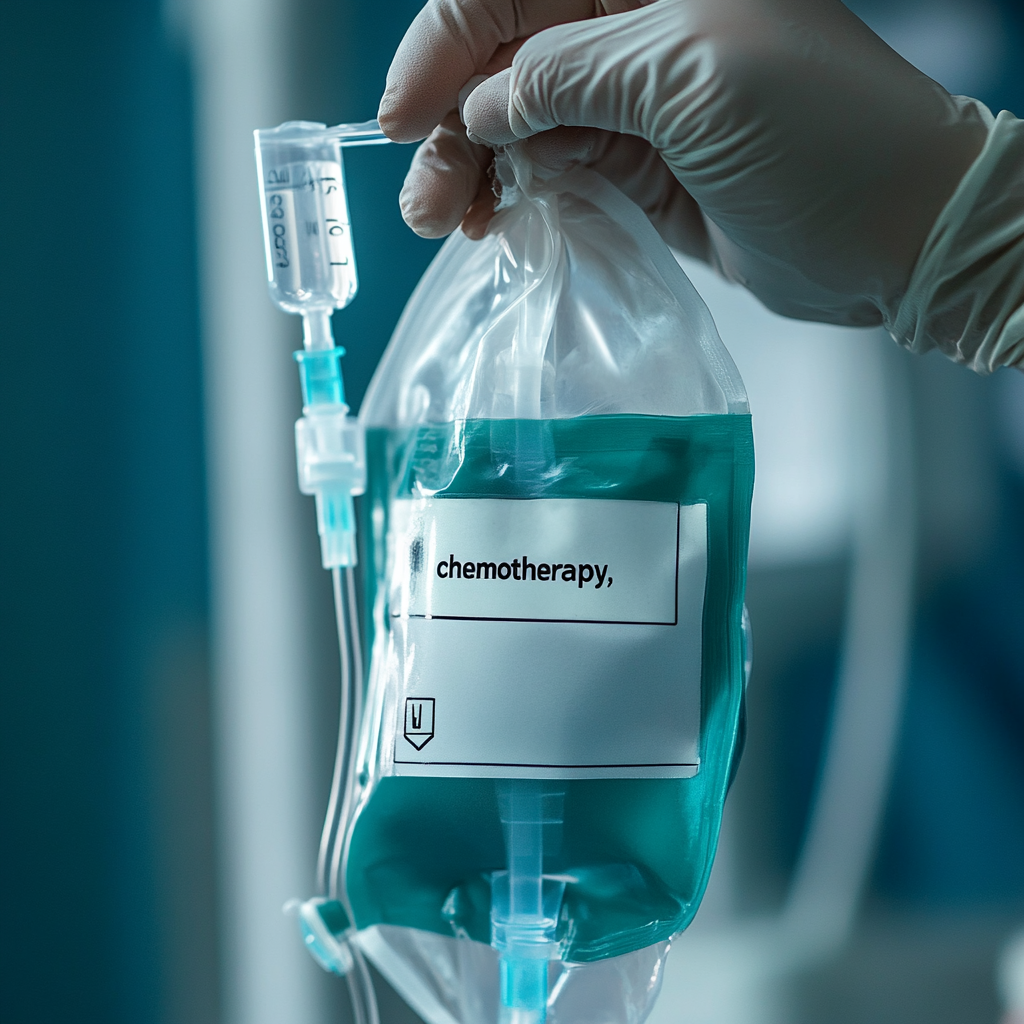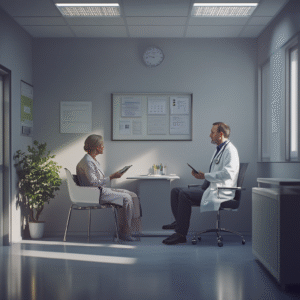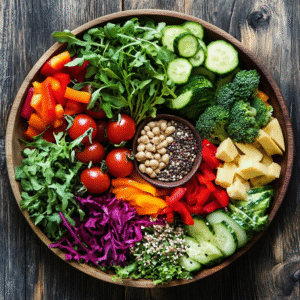Understanding Chemotherapy side effects
For many patients, Chemotherapy side effects present a daunting challenge in their fight against cancer. While Chemotherapy effectiveness often saves lives, questions still arise about the potential benefits versus the discomfort endured. As a result, numerous individuals explore Alternative cancer treatments, sometimes including Natural cancer therapies, to ease the overall strain of conventional approaches. Additionally, emerging supportive solutions like Vidatox aim to mitigate severe symptoms and enhance treatment outcomes.
Table of Contents
- What Are Chemotherapy side effects?
- Exploring Alternative cancer treatments: A Growing Trend
- Reevaluating Chemotherapy effectiveness for Advanced Cases
- Insights on Vidatox and Other Emerging Options
- Natural cancer therapies: Holistic Approaches
- Quality of Life vs. Extended Life: A Global Perspective
- Conclusion
1. What Are Chemotherapy side effects?

Chemotherapy is designed to kill rapidly dividing cancer cells. However, it can also affect healthy cells in the body, leading to Chemotherapy side effects that range from mild to severe. These effects commonly include fatigue, nausea, hair loss, and an increased susceptibility to infections. While doctors strive to manage these Chemotherapy side effects, the physical and emotional toll can still be daunting.
Beyond the immediate problems, there are additional Chemotherapy side effects related to long-term health—such as potential organ damage and neuropathy. The human body reacts differently to chemotherapy, making it imperative for each patient to weigh the risks and rewards carefully. This is one reason Alternative cancer treatments have become a growing area of interest for those looking to mitigate some of the burdens associated with conventional options.
2. Exploring Alternative cancer treatments: A Growing Trend

As concerns about Chemotherapy side effects persist, many patients and healthcare providers are exploring Alternative cancer treatments—also known as non-conventional cancer methods or complementary cancer approaches. These approaches may include:
- Nutritional therapies
- Acupuncture
- Hyperthermia treatments
- Natural cancer therapies such as herbal supplements
Such methods are not necessarily designed to replace traditional treatments but often aim to work alongside them. By combining chemotherapy with Alternative cancer treatments, some patients report fewer Chemotherapy side effectsand a better overall sense of well-being.
Integrative vs. Alternative
“Integrative” strategies typically involve combining conventional medicine with evidence-based Alternative cancer treatments, while purely “alternative” treatments may forgo chemotherapy or radiation entirely. The growing trend toward integrative care represents a shift in patient attitudes, prioritizing a more holistic approach that addresses emotional, nutritional, and physical health.
Many of these Alternative cancer treatments are still under research. Although anecdotal success stories exist, it’s essential for anyone considering such therapies to consult medical professionals to ensure safety and compatibility with ongoing cancer treatments.
3. Reevaluating Chemotherapy effectiveness for Advanced Cases

While chemotherapy can deliver life-saving results for many patients, questions surrounding Chemotherapy effectiveness (also referred to as efficacy of chemo or chemotherapy success rate) are particularly pressing for those in advanced stages of cancer. Recent global discussions have underscored the complexity of deciding when chemotherapy is beneficial and when the Chemotherapy side effects outweigh the potential gains.
Paraphrased Insights from Global Research
In a range of studies—originally highlighted by American scientists—researchers found that, for some patients in terminal stages, chemotherapy might prolong life by only a few days or weeks. Yet the Chemotherapy side effects in these final moments can be extremely distressing, sometimes leaving patients in a hospital setting rather than allowing them the comfort of their own home.
According to these studies, it was noted that patients in advanced or “terminal” stages experienced exacerbated pain and discomfort when undergoing chemotherapy. The life extension provided by chemotherapy was minimal, but the Chemotherapy side effects amplified suffering, limiting a patient’s ability to spend meaningful time with family.
Healthcare professionals have begun to question whether offering chemotherapy in such stages is always justified. For example, younger patients who hold onto the hope of recovery may strongly pursue chemotherapy. However, if the disease is truly in a final, incurable stage, the Chemotherapy effectiveness may be minimal compared to the hardships caused by Chemotherapy side effects.
Crucially, some patients may not fully understand the impact of these Chemotherapy side effects because discussions about death and end-of-life care can be emotionally charged. Many oncologists hesitate to initiate these talks—especially with younger patients—leading them to choose chemotherapy without realizing how limited the Chemotherapy effectiveness might be in terminal cases.
This research does not suggest chemotherapy is futile overall; rather, it highlights the importance of customized strategies. Each patient’s situation is unique, which is where Alternative cancer treatments and Natural cancer therapies can potentially come into play alongside—or, in some cases, instead of—additional chemotherapy cycles.
4. Insights on Vidatox and Other Emerging Options
One of the emerging solutions attracting attention is Vidatox, also referred to as Rhopalurus junceus extract or blue scorpion venom. Extracted from the venom of a specific scorpion species found in Cuba, Vidatox claims to provide supportive benefits for patients undergoing cancer treatments. While it does not promise a cure, proponents of Vidatox suggest that it may help manage pain, reduce inflammation, and even improve overall well-being.
Ongoing Research on Vidatox
Studies on Vidatox are still in preliminary stages, and definitive scientific consensus has yet to be reached. Some research points to anti-inflammatory effects, while anecdotal reports from patients mention reduced discomfort and fewer Chemotherapy side effects when used in conjunction with conventional therapies. If you are considering Vidatox, it is essential to consult an oncologist, understand potential interactions, and remain aware that this product is often regulated differently across countries.
Vidatox represents just one of the many emerging options in the realm of Alternative cancer treatments. Like other treatments—including ozone therapy, immunotherapy, and advanced surgical interventions—further clinical trials are needed to clarify its benefits and risks fully.
5. Natural cancer therapies: Holistic Approaches
In parallel with the exploration of Vidatox, interest in Natural cancer therapies, sometimes labeled holistic cancer remedies or plant-based cancer treatments, has soared. These approaches focus on bolstering the body’s innate ability to fight disease. Key principles include:
- Nutrient-dense diets rich in antioxidants
- Herbal supplements targeting inflammation
- Stress reduction techniques (meditation, yoga)
- Minimal exposure to toxins
Why Consider Natural cancer therapies?
The rationale behind Natural cancer therapies often lies in reducing the overall toxic burden on the body. While chemotherapy effectively targets cancer cells, patients frequently endure profound Chemotherapy side effects. Proponents of Natural cancer therapies believe that dietary, lifestyle, and herbal interventions can enhance immunity and even mitigate certain Chemotherapy side effects, such as digestive issues or fatigue.
It’s important to note, however, that adopting Natural cancer therapies should complement—rather than replace—critical medical interventions, unless advised otherwise by a qualified healthcare provider. Rigorous research and clinical validation remain vital for these treatments to be widely recommended.
6. Quality of Life vs. Extended Life: A Global Perspective
A pivotal question in oncology is whether the potential benefits of extended life justify the burdens of Chemotherapy side effects. The paraphrased research above suggests that for patients in terminal stages, undergoing additional chemotherapy may not significantly prolong life, and might diminish its final quality.
- Patient Autonomy
Patients should have candid discussions with their medical teams about the Chemotherapy effectiveness for their specific cancer type and stage. This openness ensures fully informed decisions regarding chemotherapy or Alternative cancer treatments. - Symptom Management
Focusing on pain management and emotional support can be just as crucial as attempting to eliminate the cancer itself. Natural cancer therapies offer potential pathways to improve comfort, relieve stress, and minimize Chemotherapy side effects for those opting for combination treatments. - Cultural and Ethical Considerations
In some cultures, end-of-life care is heavily family-centric, with patients preferring to spend their last days at home. Striking a balance between prolonging life and ensuring quality often depends on an individual’s values and familial support system.
7. Conclusion
While chemotherapy has undoubtedly saved countless lives, Chemotherapy side effects can be harsh and, in certain circumstances, may outweigh the benefits. Patients in advanced stages must carefully weigh Chemotherapy effectiveness against overall comfort. For many, an integrative approach that combines conventional care with Alternative cancer treatments—such as Vidatox or specific Natural cancer therapies—presents a more balanced strategy.
Ultimately, the decision is deeply personal. When you consider Chemotherapy side effects, potential benefits, and alternative or complementary solutions, an honest conversation with healthcare providers, family, and support networks is essential. Everyone’s battle with cancer is unique, and the path to healing—or to a peaceful end—should reflect individual needs and values.


